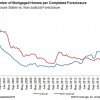Selling House After Retirement & What Not To Do!

Selling your house after retirement might appear to be a no brainer, particularly in some of the most popular real estate markets in the US. Surveys indicate about a quarter of Americans expect their house to be their main source of income when they retire.
But financial experts say there are several pitfalls to watch out for, whether you aspire to run your old house as an investment property or to downsize your house in retirement.
“If you look at the last ten years, most people have had good timing with real estate,” said Jim Yih, a financial teacher at retirehappy.ca in Edmonton. “It’s been a real bonus for many people. I spoke to a few men and women and it is a large part of their retirement plans.”
Plan personal finance programs that will help you store and save
Yet, Yih says, poor timing when selling your home after retirement can come at any given moment, as can be observed in any state, where the decline of jobs or economic factor has made an effect on the real estate marketplace, knocking back the cost of houses.
“It’s a risk for those people who need or want some equity in their home or even just [are] planning to relocate,” he said.
With that in your mind, here are a couple of real estate don’ts from the pros.
Do not overestimate the worth of your house
Though home-market falls may not be common, homeowners can not anticipate real estate to grow 10 to 20 per cent forever either, said Matthew Ardrey, a vice president with T.E. Wealth in Toronto.
“Your house is only worth as much as somebody else is willing to pay for it,” he said. “That’s something to keep in mind.”
Ardrey says he’s not liberal when working with customers that are discussing downsizing.
“In my financial projections, I do nothing more than just grow their real estate by the rate of inflation,” he said.
Ardrey additionally warns individuals to shave 10 per cent off the selling price that is estimated, as you may lose it to real estate fees, property-transfer taxes, legal fees, moving costs in addition to prices that are unanticipated. “The couch doesn’t fit in the new place,” he said.
Do not underestimate the price of your new house
A man selling their house in Toronto to move to rural Ontario might find themselves with a million additional dollars in retirement, but the truth is the fact that lots of individuals frequently change addresses within the exact same real estate marketplace, which is not as successful.
Yih said individuals downsizing in the exact same city frequently are not really downsizing when it comes to cash, particularly if you are going to a smaller, newer one from larger, older house.
New retirement communities frequently have home owners’ association fees, which can in fact make retirement more costly than living in the old house, he said.
“They’re downsizing inside of Calgary and these new retirement places, they’re brand new, they’ve got all the frills and they’re like, ‘Holy cow, we’ve got to spend an extra 50 grand to get into a smaller place.”‘
Do not move away
Yih said that if folks need to live someplace else in retirement they ought to begin planning it years beforehand.
“You go and you vacation there and you visit there every year to see if you actually like it,” he said. “And when you’re there, go look at real estate.”
Those who take that type of strategy possess the most easy transition into retirement, Yih said.
Do not become an ‘accidental landlord’
Tom Feigs, a cash trainer with Money Coaches Canada in Calgary, said he knows of individuals who decided to maintain their house as a rental property, occasionally without thinking it through.
He said looking after a property is a determination not to be dismissed, and warned against becoming an “accidental landlord.”
“You have to be able to stick with it for a period of time, and you have to be comfortable with that,” he said. “Itis a job along with the job wants consideration. If you are in a retirement lifestyle and you also do not need to have a job, maybe real estate is something that you need to move away from.”
He said any retirees should have an exit strategy. “Know when to quit.”
Do not place all your eggs in one basket
Feigs said concentrating on the selling of your home is not safe, and retirees should have a mixture of money and low-risk investments, along with longer-term investments like real estate.
“It’s not a good idea to have real estate as the only card in your deck, because it’s not liquid,” he said. “It is not simple to sell generally. It takes time, and that means you would like to get some diversification.”
- Created On: January 7, 2016
- Last Updated On: January 7th, 2016 at 5:52 pm
- Selling Your Home
- No Comments













